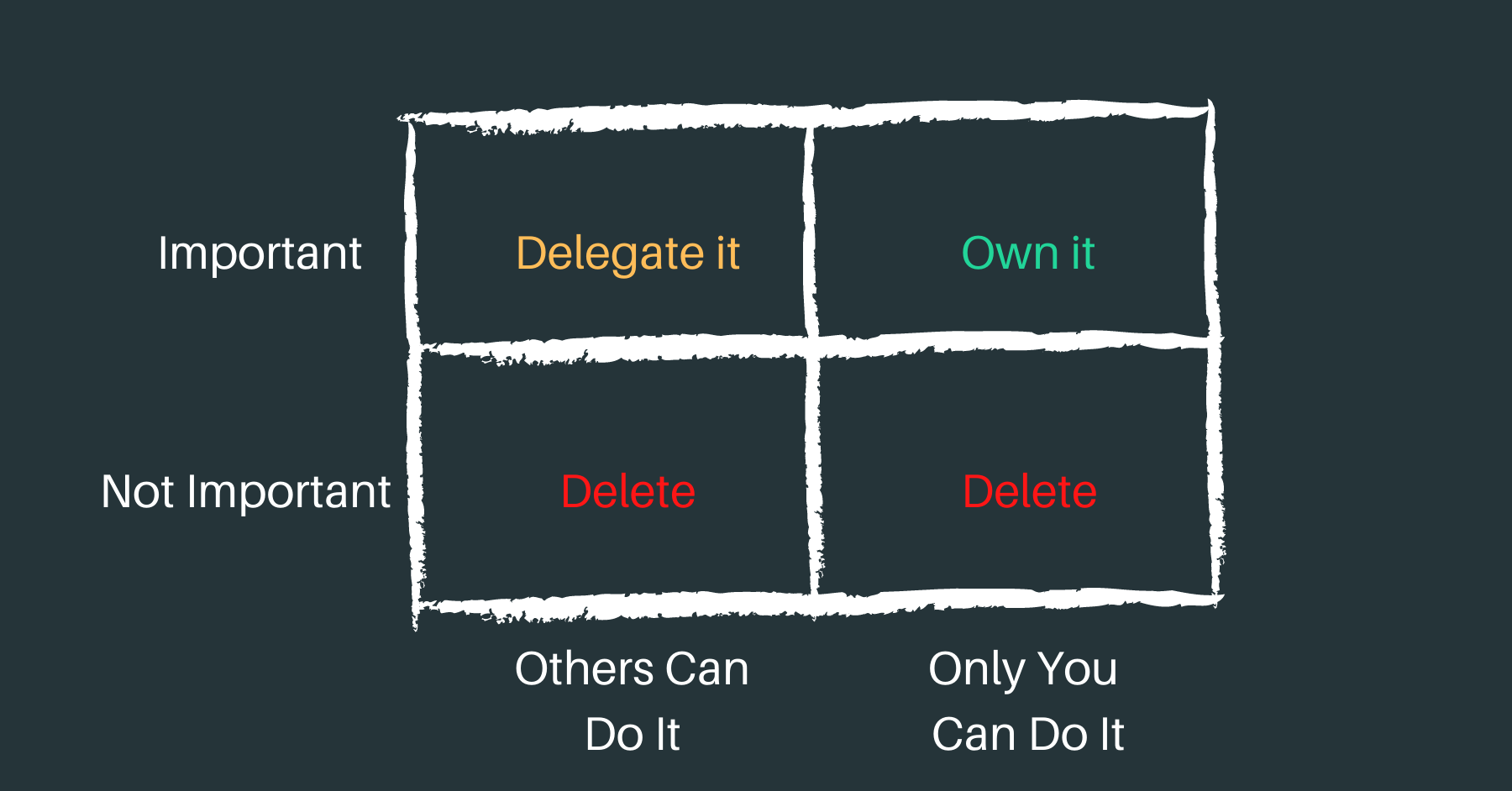How to know what to delegate
Moses’ father-in-law said to him, “What you are doing is not good! You will surely wear out, both you and these people who are with you, for this is too heavy a burden for you; you are not able to do it by yourself. […]
Moses listened to his father-in-law and did everything he had said. Moses chose capable men from all Israel, and he made them heads over the people, rulers of thousands, rulers of hundreds, rulers of fifties, and rulers of tens.
They judged the people under normal circumstances; the difficult cases they would bring to Moses, but every small case they would judge themselves. - Exodus 18: 17-26
Jethro and Moses. Credit: Travis Node
The passage above is from the book of Exodus in the Bible.
It is a great lesson on delegation.
Moses wasn’t doing a great job delegating and was working overtime to get things done. (Sounds familiar? 😉) His father-in-law, Jethro in his wisdom advised Moses on what and how to delegate.
This passage taught me a lot about the importance of delegation.
Delegating wasn’t always my strength. (Even now, it’s still a work in progress)
As someone who enjoys doing the work, I always find myself taking ownership of responsibilities.
As HeyOrca grew, I found that the number of responsibilities that I was juggling grew as well.
It got to a point that I couldn’t provide adequate attention to the things that matter and started dropping balls.
Actual footage of me trying to juggle too many responsibilities 😂
I learned that as leaders, we need to take a deliberate approach to delegation.
It’s easy to go on autopilot and not reevaluate whether we are still the best person to take on the responsibility.
How do you know what to delegate?
Here’s a matrix that we use at HeyOrca to determine what we should own and what we should delegate.
Don’t delegate things that are important and only you can do it.
Delegate things that are important but others can do it.
Try to delete things that are not important, so that you can focus on things that are important.
Just because you can, doesn’t mean you should
So, why is delegation important?
From my experience, here are some reasons why
It prevents you from burning out.
Remember that life is a marathon, not a sprint. Delegation makes this journey a sustainable one.
It frees you up to work on important things that only you can do.
A piece of advice that stuck with me was “Just because you can, doesn’t mean you should.”
This has made me and my team more effective as we are only working on things that we should.
Use the Delegation Matrix above to determine what you should delegate.
It creates trust in your team.
When you delegate, you are signaling to your team that you trust them enough to have them take over from you.
It empowers your team to take on more responsibilities.
Your team will take more ownership and accountability over their responsibilities when they know that it is truly theirs.
It allows your team to grow.
Not delegating is selfish, it robs your team of the opportunity to grow. The more ambitious team members will come to the conclusion that “they’ve hit the ceiling” and move on to another team. When in actual fact, there’s likely more room to grow if only responsibilities were delegated.
Delegation is a skill that I am still improving on.
Knowing what to delegate is only the start, next is to know how to delegate.
I’m still learning this aspect of delegation, so hopefully, I’ll be able to write about it soon!
If you have any advice on delegation, I’d love to hear from you in the comments section!
I hope this helps! See you next week 👋


